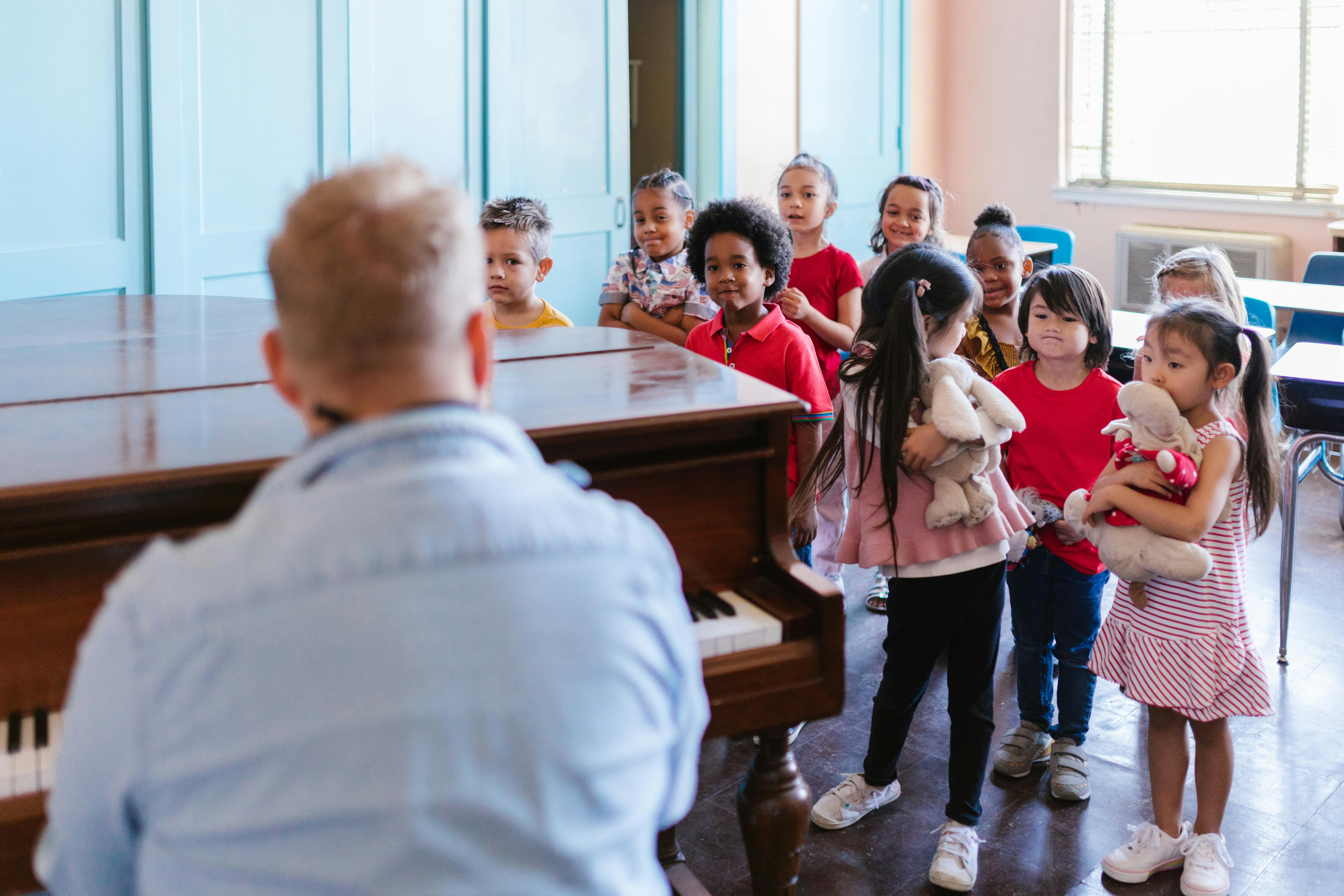Almost everyone is somehow involved in music. Whether by listening to music, playing an instrument, or composing music yourself, you’re probably in some way a fan of music. With how wide-ranging music is with its many genres, it’s pretty easy to find something you like. But not everyone likes the idea of music education. Spotify may be the soundtrack of your life , but when it comes to taking music class, singing in chorus, playing in orchestra, taking music theory or learning about music history, it may just not be your thing. But there is evidence that suggests that whether or not you enjoy making and understanding music, having music education is beneficial in more ways than just musical literacy.
Multiple studies have found that music education has developmental benefits for children (0-12 yrs). Students with a music education more commonly exhibited prosocial skills, better emotional intelligence, and a generally better academic performance. Music requires students to engage multiple skill sets simultaneously and can help with language development. Some studies found that students who were educated in music were more likely to have an overall higher IQ than students who did not receive a music education.
Music is often considered an art, and most music classes, along with visual art and theatre classes, all fall under the category of ‘fine arts’ in most schools. Even if you aren’t composing music, it can still feed your creative side and help develop your creative capacities, setting you up for lifelong success. In addition, students with music education are more likely to have higher academic performance than their non-music-educated counterparts. Aside from all that, one study found that music majors tended to have higher self-esteem than non-music majors. So maybe music helps with self-esteem too.
Am I arguing that everyone should learn an instrument, sing in chorus, and take multiple music classes? No. What I am arguing is that it is a proven fact that music learning facilitates learning in all areas, especially in younger kids. So should all schools offer music programs? Yes. Should high school students who aren’t into music attend music classes? Maybe. Should elementary-age kids attend music classes? Yes.
I am a person who likes music. I sing in chorus, play the piano, and enjoy listening to music. I have grown up in a household where music is just as much a part of life as eating breakfast. To me, having a music education is non-negotiable. For others though, learning about music might just be a headache. But maybe, having a bit of a headache for a little bit might have more benefits than repercussions. To me, the benefits of having a music education eclipse the downsides of avoiding a little bit of discomfort. And who knows, maybe you’ll love it and go on to become an awesome music teacher or an amazing musician.
Roxxy,
Works Cited:
“The Benefits of Music Education.” PBS, Public Broadcasting Service, https://www.pbs.org/parents /thrive/the-benefits-of-music-education.
Blasco-Magraner, José Salvador, et al. “Effects of the Educational Use of Music on 3- to 12-Year-Old Children's Emotional Development: A Systematic Review.” International Journal of Environmental Research and Public Health, U.S. National Library of Medicine, 1 Apr. 2021, https://www.ncbi.nlm.nih.gov/pmc/articles/PMC8037606/.
How Music Education Helps Students Learn, Achieve, and Succeed. Arts Education Partnership, https://files.eric.ed.gov/fulltext/ED541070.pdf.




I 100% agree with everything said here. I grew up being instructed towards music and was told it would help with my brain development. I have observed at Uni that many of the bright students here have or are wrapped into music one way or another. I don't know if it truly has had an effect on me, but it is very cool being able to read a musical piece off of a few peices of lines.
ReplyDeleteI really enjoyed reading this blog! I myself am also heavily involved with music and I think that basic musical skills can benefit everyone and prove useful as a stress management tool. I found it quite interesting to read about the more academic-based benefits and completely agree that musical education should be required in elementary schools.
ReplyDeleteI really like the points you presented in this blog. I never realized that music education in schools was associated with better emotional skills and better academic performance. Growing up, I did have required music classes in school and have seen that people who showed interest in that class, tended to perform better in school. I agree that it would be a great idea to require music education in elementary schools.
ReplyDeleteyou made some really interesting points in this blog that I hadn't really considered before. As someone who deeply enjoys music I found this very interesting.
ReplyDeleteI agree that music classes are a great skill for younger kids to learn. Being in a music class is a basic as working on rhythm or learning different notes. I wasn't aware that music education led to better emotional skills but that makes sense. Music is a great way for individuals to express themselves and I do think it should be required, at least in elementary schools.
ReplyDelete